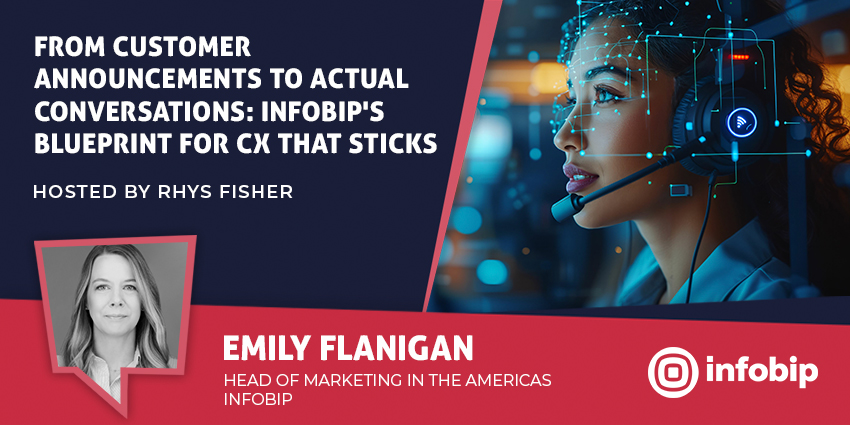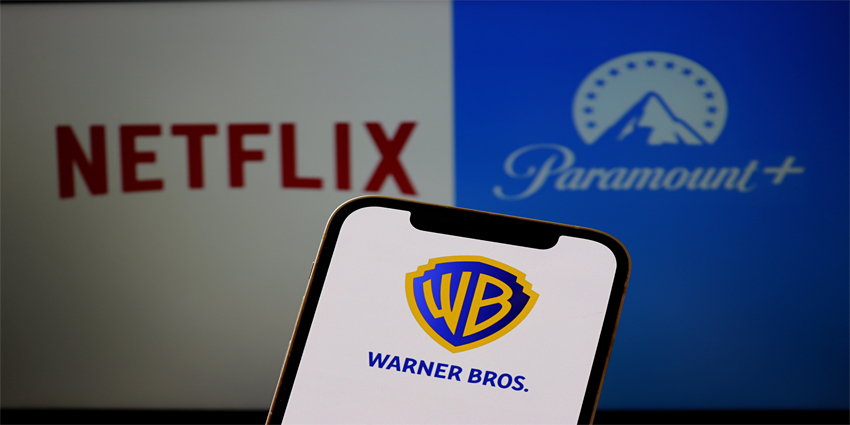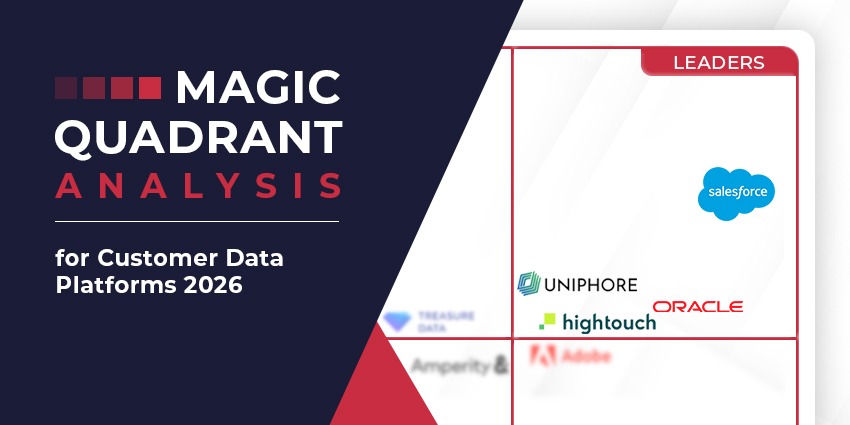Companies need to meet, engage, and support customers where they are – and today, that means being digital-first.
Digital Experience Platform (DXP) providers are giving organizations the tools to design, manage, and optimize digital experiences at scale.
They offer comprehensive platforms that package journey orchestration, content management, and various customer engagement tools.
According to Gartner, by 2026, around 70 percent of organizations will have acquired a composable DXP solution.
If that’s the case, many businesses will be currently assessing the best, next-generation DXP providers and comparing their options.
While there are plenty of impressive DXP providers to choose from. Here are some of those that stand out from the crowd.
Adobe
Adobe offers a DXP solution as part of the “Adobe Experience Cloud”, which includes tools for content management, personalization, customer journey analytics, and a customer data platform.
The tech giant stands out for its leading-edge innovation, versatile platforms, and extensive partner ecosystem.
On that ecosystem, it ensures organizations can tap into an array of design agencies, marketing consultancies, and systems integrators to support large-scale deployments.
Right now, the company is grabbing attention with its AI innovation, especially through Firely. However, it pairs that with a non-destructive approach to generative AI, helping companies to automate creative processes without compromising brand guidelines.
Optimizely
Optimizely focuses on composable, modular systems. The Optimizely One platform combines CDP, personalization, content management, and AI tools, like the Opal assistive AI.
Opal is the platform’s native AI assistant, which now features agentic capabilities. Indeed, it can chain AI agents to accomplish tasks that flit between the platform’s various solutions.
There’s also the Optimizely Graph that fetches content from different sources across the platform, adapts it, and prepares it for delivery.
These innovations and the company’s straightforward pricing structure make it a compelling option for brands that wish to start small, adapt, and scale over time.
Acquia
Acquia’s digital experience platform is a leading open-source solution, with its Drupal-based CMS a standout feature.
Others include its “Optimize” tool for accessibility and personalization, a CDP, and a Campaign Studio for multichannel marketing.
Today, the platform includes support for AI-driven add-ons, like a Drupal developer code assistant, ideal for fast-tracking projects.
The Acquia community has also developed endless plugins and extensions that teams can experiment with.
Finally, Acquia’s “centralized development environment” allows businesses to unify websites and digital apps, ensuring efficient reuse of coding and cutting costs, too.
OpenText
OpenText has a reputation for strong content management and data governance features, making it a stand-out option for companies in regulated industries.
Unlike some DXP providers, OpenText offers various deployment options for its systems, including a fully managed service option and hosted solutions.
Since 2024, OpenText has updated its ecosystem, combining Digital Asset Management (DAM), analytics, personalization, and content management, with “Core Journey” for journey mapping and action orchestration. There’s also the OpenText Experience Aviator for image and content creation and analysis.
OpenText extends “beyond DXP” by integrating capabilities such as IT operations management and managed detection and response (MDR) services. This synergy benefits enterprises that want a single-vendor approach for overlapping areas like analytics, business intelligence, and content governance.
HCL Software
Offering DXP as part of the wider HCL Total Experience portfolio, HCL Software gives businesses tools for content management, no-code application development, CDP management, and more.
The company mostly focuses on on-premises deployments, with some PaaS alternatives.
Like some other DXP providers, HCL focuses heavily on security and governance, and in 2024, the company doubled down on its analytics features, with HCL Discover. This new feature supports real-time activity management, root cause analysis, funnel insights, and more.
Organizations that prioritize security and robust analytics often find HCL’s integrated platform attractive for complex, large-scale projects.
Sitecore
Sitecore covers most of the same features offered by many top DXP providers, although Sitecore has made major strides in some areas.
The company’s visual content development tools, marketing intelligence AI, and analytics dashboards stand out in the DXP space.
Plus, Sitecore’s B2B offerings have gained traction among companies searching for secure, authenticated digital experience systems.
Sitecore’s cloud-native architecture also makes it easy for businesses to update and transform their strategies, without ripping and replacing tools.
Magnolia
Also focused on composability, Magnolia’s DXP platform supports content management, personalization, and search optimization.
The company is making waves in the AI space, with AI accelerators and assistants for various stages of customer engagement.
With support for a range of third-party tools and custom packaged business capabilities (PBCs), Magnolia appeals to many companies seeking more flexible ecosystems.
The pricing structure is also very clear and easy to understand, particularly for the midmarket.
While the company’s SaaS capabilities are still growing, Magnolia has earned the trust of many global businesses, particularly those that want to unify legacy and digital tech.
Contentstack
Contentstack offers a headless CMS and composable DXP platform, which includes products for launching campaigns, personalization, and more.
Unlike similar DXP providers, Contentstack provides a native front-end hosting offering, ideal for those seeking an integrated and bundled system.
Additionally, it organically develops its own built-in personalization functions and is developing more first-party AI solutions.
Contentstack is also well-regarded for customer service, implementing a “Care without Compromise” policy.
Crownpeak
Crownpeak has become a strong contender in recent years, winning over IT advocates, as well as CX leaders.
The company offers solutions for personalized content at scale, AI-driven content search, and personalized recommendations.
Crowpeak was an early supporter of composable DXPs and has built a selection of flexible integrations, accessibility tools, and a hybrid headless content management solution.
As a fully managed SaaS platform, it boasts rapid go-to-market timelines for companies that lack the resources to run on-premises systems.
Bloomreach
Bloomreach doesn’t position itself in the same way as other DXP providers, focusing specifically on e-commerce experiences.
However, it still offers companies a range of valuable DXP tools, from product discovery solutions to content management tools.
The Commerce Experience Cloud is packed with solutions for in-depth data analytics, customer journey mapping, and engagement.
The vendor is also investing in machine learning models to help companies optimize marketing campaigns and catalogs.
Bloomreach is an especially compelling choice for retailers, promising an opportunity to develop end-to-end journeys for online shoppers.
Jahia
Jahia delivers a combined DXP and CMS solution, allowing companies to tap into headless and traditional CMS systems they can customize with over 1,000 connectors.
The system also has a built-in CDP for personalization, A/B testing, and optimization.
Jahia has also established a comprehensive partner network to help optimize custom integrations and a full developer community, even launching an academy for team training.
Like many DXP vendors, this company also focuses heavily on security and compliance, supporting a range of authentication methods and access policies.
Uniform
Uniform is a newer entrant but has quickly gained recognition for its “composable flexibility”. Its no-code integrations allow organizations to merge multiple back-end systems while preserving a unified front-end experience.
The Mesh API integration is ideal for companies that want to avoid extensive coding when developing end-to-end experiences.
Plus, the lightweight CMS supports businesses navigating away from monolithic DXPs.
Similar to other major DXP providers, Uniform is experimenting with AI tools, such as a range of AI agents that can automatically suggest improvements to page layout and content strategies. These agents can even understand performance metrics and use them to guide suggestions.
Liferay
Liferay has established an expansive library of prebuilt integrations with various GenAI tools and applications, as well as offering headless APIs for instant access to versatile AI platforms.
For beginners, Liferay stands out among DXP providers for its low-code development platform, which includes a low-code API builder.
Additionally, Liferay benefits from strong composability, offering a blend of PBCs and robust extensions.
Mostly, the company targets mid-sized to large enterprises in industries like retail, banking, government, and education.
Progress
The Progress Digital Experience platform consists of a range of “Sitefinity” CMS and CDP solutions, bundled with tools for app development and conversational AI tools.
Progress focuses heavily on flexible, omnichannel strategies, helping midsized organizations navigate complex environments.
It has also been busy updating its customer data management features to bolster AI use cases like conversion probability insights and real-time predictions.
It also supports companies looking for intuitive, authenticated experiences with branded portal options.
Though it’s not as widely recognized among some enterprise buyers, Progress offers an appealing, cost-effective entry point for DXP initiatives.
Kentico
With the “Xperience” platform, Kentico gives small and mid-sized companies in various industries access to a broad range of features.
Companies can combine content management, marketing automation, and digital commerce tools with built-in CRM components.
As such, this solution is great for organizations that want a one-stop shop.
Kentico’s straightforward and bundled pricing appeals to those looking to cut costs on their DXP strategies.
The company has been regularly investing in its cloud offering and personalized experience management tools.
Recently, the brand introduced a new visual page builder with rule-based personalization and expanded its marketplace.
CoreMedia
CoreMedia is gaining attention among DXP providers in Europe, particularly in the retail and communication industries.
The provider offers a composable DXP that blends content management with orchestration, personalization, and analytics.
A big focus for CoreMedia is its proprietary AI (KIO) and range of intelligent blueprints for common DXP use cases.
Companies can even create AI agents that perform multi-step processes and provide in-app guidance to users.
CoreMedia’s journey management tools are eye-catching, too. They give businesses the ability to manage a huge number of touchpoints, from contact centers to online portals.
Contentful
Contentful has evolved from a headless CMS to a composable DXP with strong brand recognition in tech-forward enterprises.
The company’s cloud-native approach resonates with organizations looking for a quick way to digitally transform, without losing control.
For companies looking for scalability and easy integration, Contentful has a fantastic partner network and offers access to systems integrators across North America and Europe.
Plus, the company has designed a fantastic, user-friendly development environment for front-end production.
Recently, Contentful has completed a few strategic acquisitions, buying companies like Ninetailed to improve its personalization and dynamic segmentation features.
Builder.io
Focusing on visual development, Builder.io offers a DXP that combines a headless CMS, visual editor, and optimization tools.
The vendor stands out from other DXP providers with its “design-to-code” functionality, which helps to accelerate the path from prototyping to production.
Companies can easily upload Figma designs into the ecosystem in seconds, without a specialist developer.
Plus, the layout is ideal for non-technical users, with guardrails and the flexibility to explore less traditional, templated approaches.
Builder.io is also popular for its cost-effective pricing, allowing users to experiment with smaller proof-of-concept projects before full-scale rollouts.
Squiz
Prioritizing concepts like end-to-end automation and generative AI, Squiz helps companies build, personalize, and optimize customer experiences faster.
The company’s platform offers access to AI tools for content generation, no-code visual page-building systems, and advanced security and permission controls.
On the latter, Squiz delivers comprehensive brand governance features and custom guardrails to companies in highly regulated industries.
There are also AI-driven content migration tools that analyze HTML for component patterns, simplifying replatforming projects.
Finally, Squiz’s DXP platform seamlessly connects with various tools, such as ChatGPT, Salesforce, and WhatsApp, with pre-built “recipes” that reduce coding headaches.
Pimcore
The Pimcore “Enterprise Edition” platform specializes in data management.
Beyond basic content management, the solution offers support for product information, digital assets, and master data management, which is ideal for teams with huge databases.
Pimcore supports flexible deployment options and empowers companies to integrate AI-powered solutions into omnichannel experiences.
Teams also have the freedom to experiment with customer data platforms and branded experience portals.
Developers get a lot of flexibility with Pimcore, too. They have the freedom to customize every workflow and integrate endless different platforms in minutes.
Choosing from the Top DXP Providers
Organizations in every sector face growing demands from digitally-savvy customers looking for consistency and personalization across channels.
The top DXP providers mentioned above are helping companies to engage, delight, and convert customers at scale.
All of these providers have something unique to offer, for companies focused on AI, application development, personalization, or compossibility.
Discover more about how Digital Experience Platforms work in this DXP introduction guide.







